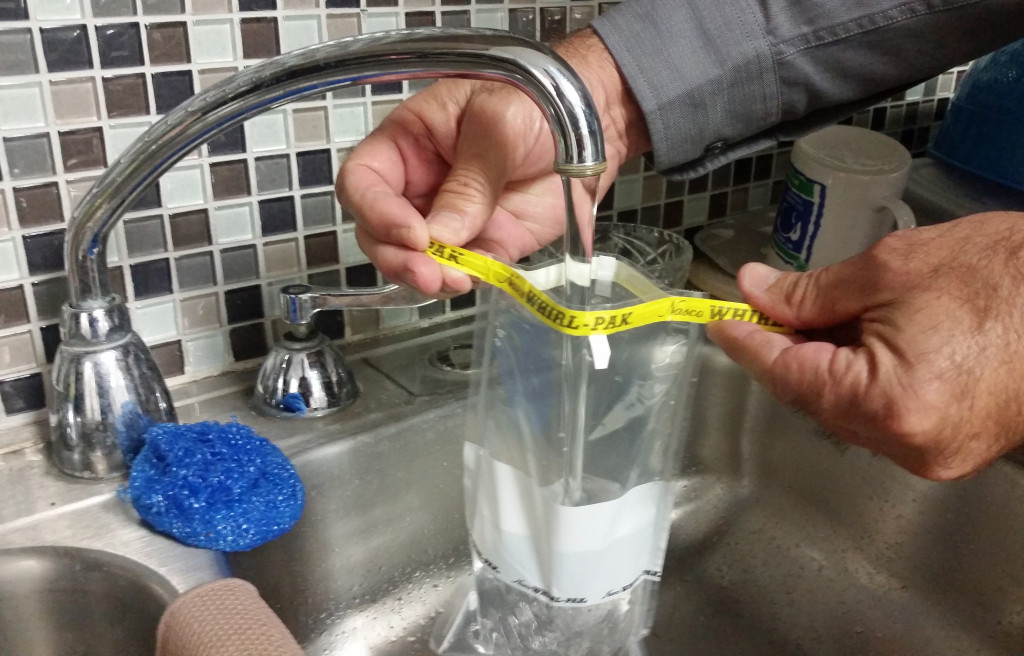Three private water well screening meetings set in the South Plains
Seminole, Lamesa and Lubbock all will host well water testing
The Texas Well Owner Network is hosting two “Well Informed” water well screenings and one “Well Educated” training in the South Plains Nov. 1-2.

The Well Informed screenings will be Nov. 1 in Seminole and Nov. 2 in Lubbock. The Well Educated program will be Nov. 1 in Lamesa. All will provide area residents with the opportunity to have their well water tested, as long as samples are dropped off the day before the event. All are free and open to the public.
The screenings are presented by the Texas A&M AgriLife Extension Service and Texas Water Resources Institute, TWRI. The cost is $15 per sample, payable by cash or check when picking up sample containers.
Meeting schedules
Meeting information will be:
— Seminole: Residents wanting their well water screened should pick up a sample bag, bottle and instructions from the AgriLife Extension office for Gaines County, 101 S. Main St., Room 108 in Seminole, or Andrews County, 851 E. Broadway St. in Andrews, or the Llano Estacado UWCD office, 200 S.E. Avenue C, Seminole. Water samples can be dropped off from 8:30-10 a.m. at the AgriLife Extension offices or the Water District office. The follow-up meeting to explain the results of the screenings will be at 6 p.m. Nov. 1 at the Gaines County Community Building at the Gaines County Park, 853B U.S. Highway 385 North, Seminole. For more information, contact the AgriLife Extension office in Gaines County at 432-758-4006, the AgriLife Extension office in Andrews County at 432-524-1421 or the Llano Estacado UWCD at 432-758-1127.
— Lamesa: Private well owners who would like to have their well water tested can pick up two sample containers and collection instructions in the week before the event from the AgriLife Extension office in Dawson County, 901B South Houston, or the Mesa Underground Water Conservation District office, 212 N. Ave G. Sample drop-off will be the day before the event on Oct. 31 from 8:30-10 a.m. at the same places. The Well Educated training will be from 8 a.m.-noon Nov. 1 at the AgriLife Extension office in Lamesa. For more information, contact the AgriLife Extension office in Dawson County at 806-872-3444 or the Mesa UWCD at 806-872-2838.
— Lubbock: Residents must pick up their water sample bottle, bag and instructions from the AgriLife Extension office in Lubbock County at 916 Main Street, Suite 401, Lubbock, prior to Nov. 1. The office is open 8 a.m.-noon and 1-5 p.m. Water samples must be returned to the office on Nov. 1 between 8:30-10 a.m. The follow-up meeting to explain the results of the screenings will be at 1:30 p.m. Nov. 2 at the AgriLife Extension office. For more information, contact the AgriLife Extension office in Lubbock County at 806-775-1740.
Sampling instructions
Joel Pigg, AgriLife Extension program specialist and TWON coordinator, Bryan-College Station, said the TWON program is for Texas residents who depend on household wells for their water needs.
Water samples will be screened for contaminants, including total coliform bacteria, E. coli, nitrate-nitrogen and salinity.
“It is very important that only sampling bags and bottles from the AgriLife Extension office be used and all instructions for proper sampling are followed to ensure accurate results,” Pigg said.
Private water well testing should be done annually, he said. The samples will be screened for contaminants, including total coliform bacteria, E. coli, nitrate-nitrogen and salinity.
Pigg said it is extremely important for those submitting samples to be at the Nov. 2 meeting to receive their results, learn corrective measures for identified problems and improve their understanding of private well management.
Well water contaminants, concerns
“The Well Educated program was established to help private water well owners become familiar with Texas groundwater resources, septic system maintenance, well maintenance and construction, and water quality and treatment,” Pigg said. “It allows them to learn more about how to improve and protect their community water resources.”
Pigg said the training is one of several being conducted statewide through the Texas Well Owner Network project.
“The core content of this program is the same as other trainings, but the information is tailored to local water quality issues and aquifers,” he said.
Pigg said research shows the presence of E. coli bacteria in water indicates that waste from humans or warm-blooded animals may have contaminated the water. Water contaminated with E. coli is more likely to also have pathogens present that can cause diarrhea, cramps, nausea or other symptoms.
The presence of nitrate-nitrogen in well water is also a concern, and water with nitrate-nitrogen at levels of 10 parts per million is considered unsafe for human consumption, he said.
“These nitrate levels above 10 parts per million can disrupt the ability of blood to carry oxygen throughout the body, resulting in a condition called methemoglobinemia,” he said. “Infants less than 6 months of age and young livestock are most susceptible to this.”
Salinity, as measured by total dissolved solids, will also be determined for each sample, he said. Water with high levels may leave deposits and have a salty taste. Using water with high levels of saline for irrigation may damage soil or plants.
To learn more about the programs offered through the network or to find additional publications and resources, visit http://twon.tamu.edu.
Funding for the Texas Well Owner Network is through a Clean Water Act nonpoint source grant provided by the Texas State Soil and Water Conservation Board and the U.S. Environmental Protection Agency. The project is managed by TWRI, part of Texas A&M AgriLife Research, AgriLife Extension and the Texas A&M University’s College of Agriculture and Life Sciences.


